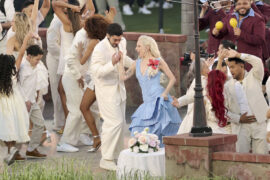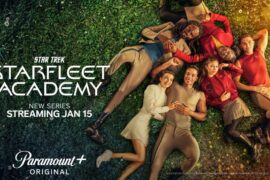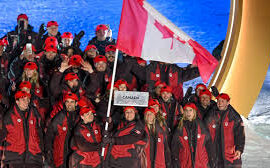Looking for something to stream you can hum along to?
You can do no better than Music By John Williams, streaming now on demand on Disney+. The documentary is directed by French filmmaker Laurent Bouzereau (Natalie Wood: What Remains Behind) and produced by many of the people whose films Williams has enhanced, including Steven Spielberg, Brian Glazer, Ron Howard, Kathleen Kennedy and Frank Marshall.
They, and others who appear on the doc, including J.J. Abrams, Chris Martin, Chris Columbus, George Lucas, Itzhak Perlman, Lawrence Kasdan, Yo-Yo Ma, Ke Huy Quan, Seth MacFarlane and Branford Marsalis, are in awe of the maestro.
And why not? For over 70 years, Williams has composed, orchestrated and conducted the music from the movies that has stayed in our heads long after we’ve seen the films.
So many blockbuster hits feature scores from Williams: “Jaws” (1975), “Star Wars” (1977), “Close Encounters of the Third Kind” (1977),”Superman” (1978), “Indiana Jones and the Temple of Doom” (1981), “E.T. The Extra Terrestrial” (1982), plus the “Home Alone” and “Harry Potter” films.
Even the most casual film fan knows of Williams incredible string of blockbuster movie hits. What I learned from the documentary is where it all began. Williams, whose original ambitions was to simply be a pretty good pianist, wrote his first composition in 1952 for a promotional film called “You Are Welcome” commissioned by the Newfoundland tourist information office. A member of the US Air Force, Williams was stationed at the time at Pepperrell Air Force Base, a decommissioned US base in Newfoundland before confederation.
advertisement
As “Johnny” Williams, he worked steadily in the ‘50s and ‘60s composing music for television, working on several Irwin Allen hits such as Time Tunnel and Lost in Space and even on the pilot episode of Gilligan’s Island.
Williams is the most interesting voice in his own story. He talks about the thrill of conducting his own music with a full orchestra. Some of his famous themes were recorded at Abbey Road Studios in England, and the point is made in the doc that Williams’ prolific output has made him The Beatles of movie music, writing hit after hit. It would have been interesting to hear from Paul McCartney among the many voices on this doc singing Williams praises.
Some of his themes landed on Billboard record charts. Along the way, he has racked up 54 Academy Award nominations (winning five), second only to Walt Disney. He’s also won several Emmys, Grammys and Golden Globes.
The film makes the point that Williams didn’t just write themes. In “Star Wars,” for example, there are separate marches and other music for each character. As I told CBC One Montreal’s Radio Noon host Shawn Apel Wednesday, some of those themes are so iconic they have wound up as phone ring tones. When a late, great friend of mine’s phone started playing the Storm Troopers Imperial Army march, for example, he knew that meant his wife was trying to reach him!
Point is, Williams himself never phoned it in. He’s still, at 92, composing, having penned the music for Spielberg’s last Indiana Jones movie in 2023. His daughter says her father still writes music every day.
Spielberg also says that if you turn the sound off, his films are about half as interesting. Williams music cued all kinds of responses. He breaks down, at one point, how those five notes in “Close Encounters” was worked on almost as a math equation, with the notes arranged almost as an open sentence that keeps setting up the next line.
Williams says one of his toughest assignments was composing the score of his most recent Oscar winner, Spielberg’s World War II concentration camp saga “Schindler’s List” (1993). He says he was so moved just seeing the film he told Spielberg he wasn’t good enough to write the music.
“I know,” said Spielberg, “but the guys who could are all dead.”
Williams also composed music for director Oliver Stone’s feature “JFK” (1991), a rare assignment where Stone asked him to write the music first and the director later edited his visuals to fit the music.
The New York native’s first Oscar was awarded for adapting the score for director Norman Jewison’s 1971 film “Fiddler on the Roof.” Other recognizable anthems were composed forty years ago for NBC Nightly News and Olympic broadcasts that are still in use today.
Why are there no inspiring and memorable Indiana Jones or Superman themes in movies today? Williams theory is that he is part of a dying breed as one of the last of the great orchestral conductors. The thrill for the former Boston Pops baton waver has always been hearing all that brass and all those strings bringing music he wrote to life.
Many of today’s scores rely heavily on synthesisers, just as many images are computer generated digital effects. Not every technilogical advance is great, but on the other hand, at least now you can watch a great documentary on John Williams on demand on a streaming service.







2 Comments
John Williams is the best he composed some of the earliest Irwin Allen shows Lost in space voyage to the bottom of the Sea Land of the Giants time tunnel and his music was phenomenal in them
It sure was. Thanks Brad.